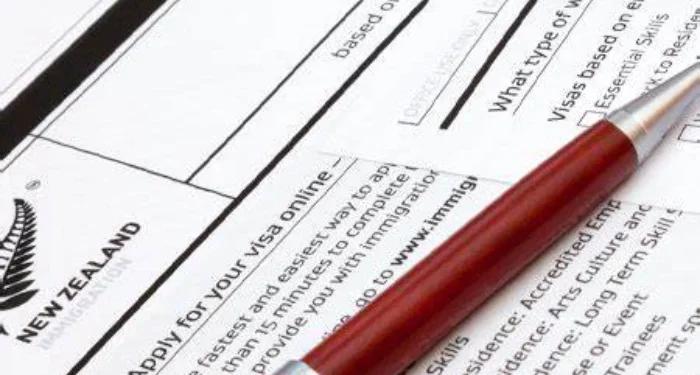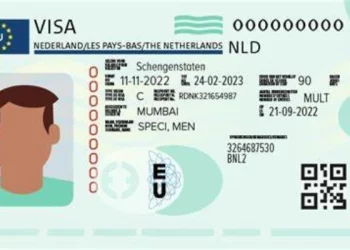Embarking on a journey to study in Germany is an exciting prospect, but one crucial aspect that demands careful attention is the timing of your student visa application. Applying at the right moment can streamline the process and ensure a smooth transition to your academic life in Germany. In this comprehensive guide, we will explore the various factors that determine when you should apply for a German student visa, taking into account different types of study programs, application processes, and potential delays.
Understanding the Basics of German Student Visas
Types of German Student Visas
There are mainly two types of student visas in Germany: short – term visas for stays of up to 90 days and long – term visas for stays exceeding 90 days. If you are planning to enroll in a short – term language course or an exchange program that is less than 90 days, a short – term visa is sufficient. However, for most degree – seeking students, a long – term visa is required.
General Processing Times
Short – term visas: These are usually processed within 15 working days, provided all the required documents are submitted correctly. But it’s still advisable not to cut it too close to your departure date.
Long – term visas: The processing time for long – term student visas is significantly longer. On average, it can take anywhere from 4 to 12 weeks. However, during peak seasons, such as the months leading up to the start of the academic semester, the processing time may be closer to the upper end of this range or even longer.
When to Apply Based on Academic Programs
Bachelor’s Degree Programs
Application Deadlines for Universities: German universities typically have specific application deadlines for bachelor’s programs. For the winter semester, which usually starts in September or October, the application deadline is often around July 15th for international students. For the summer semester, starting in March or April, the deadline is usually January 15th. It’s important to note that some universities, especially in more competitive fields, may have earlier deadlines.
Visa Application Timing: Given the processing times, you should aim to apply for your student visa as soon as you have received your admission letter from the university. Since it can take 4 – 12 weeks to process the visa, if your program starts in September, you should start the visa application process no later than the end of June. If you are applying for the summer semester, start the visa application by the end of November at the latest.
Master’s Degree Programs
Application Deadlines for Universities: Similar to bachelor’s programs, master’s program application deadlines vary. For the winter semester, deadlines are generally around July 15th, and for the summer semester, around January 15th. However, programs with limited seats or those in high – demand fields may have earlier deadlines, sometimes as early as May for the winter semester and November for the summer semester.
Visa Application Timing: Once you have secured your admission to a master’s program, start the visa application process immediately. If your master’s program begins in September, plan to submit your visa application by the end of June. For a summer – start program in March or April, submit your visa application by the end of November.
Doctoral Programs
Application Deadlines for Universities: Doctoral programs in Germany often have more flexible application deadlines. Some universities may have rolling admissions, meaning you can apply at any time during the year. However, it’s still a good idea to check with the specific department or research group you are interested in, as they may have their own internal deadlines or preferences.
Visa Application Timing: As soon as you have finalised your arrangements with your supervisor and received an official offer or acceptance letter, start the visa application process. Since the visa processing time can be lengthy, if possible, start the application at least 3 months before your intended start date.
Special Considerations for Visa Applications
Language Courses
Short – term Language Courses: If you are planning to attend a short – term language course in Germany (less than 90 days), you should apply for a short – term visa. Apply at least 2 – 3 weeks before your course start date. This gives you enough time to gather all the necessary documents, such as proof of enrollment in the language course, financial means to cover your stay, and travel arrangements.
Long – term Language Courses: For long – term language courses that are part of a pre – university preparation program or are more than 90 days in duration, you will need a long – term student visa. Apply for this visa as soon as you have enrolled in the language course and received all the relevant documentation. Given the 4 – 12 – week processing time, start the application at least 3 months before the course start date.
Exchange Programs
Application Deadlines for Exchange Programs: Each exchange program has its own set of deadlines. These can range from several months to a year in advance of the start of the exchange period. For example, if you are participating in an Erasmus+ exchange program, the application deadlines for universities and the program coordinators are usually well – defined.
Visa Application Timing: Once you have been selected for the exchange program and have received all the necessary documentation, such as the nomination letter from your home university and the acceptance letter from the host university in Germany, start the visa application process. Aim to apply at least 2 – 3 months before the start of the exchange program to account for any potential delays in the visa processing.
APS (Akademische Prüfstelle) – Related Considerations
APS Processing Time: For students from countries where APS certification is required (such as China), the APS process can take some time. The APS certification verifies the authenticity of your academic documents. It usually takes 2 – 5 months from the time you submit your application to receive the APS certificate.
Visa Application and APS: You cannot apply for a German student visa without the APS certificate (if required). So, plan your APS application well in advance. Once you have received your APS certificate, along with your admission letter from the German university, start the visa application process immediately.
Factors Affecting Visa Processing Times
Seasonal Variations
Peak Seasons: The months of May – August are typically the peak seasons for visa applications in Germany. This is because many students are applying for the winter semester, which starts in September or October. During these months, the German embassies and consulates receive a large volume of applications, which can lead to longer processing times. It’s crucial to apply as early as possible during this period to avoid any last – minute rushes.
Off – peak Seasons: Applying for a visa during the off – peak seasons, such as January – April or September – December (excluding the holiday periods), may result in a slightly shorter processing time. However, this does not mean you can delay your application. Always adhere to the recommended application timings based on your program start date.
Completeness of Application Documents
Required Documents: The German embassy or consulate requires a comprehensive set of documents for a student visa application. This includes a valid passport, proof of admission to a German educational institution, evidence of sufficient financial means to cover your living and study expenses in Germany (such as a blocked bank account or sponsorship letter), health insurance, and a completed visa application form.
Impact of Incomplete Documents: If your application is missing any of the required documents, the processing time will be significantly extended. In some cases, your application may even be rejected. Therefore, it’s essential to carefully review the document checklist provided by the embassy or consulate and ensure that all documents are in order before submitting your application.
Background Checks and Security Clearances
Security and Background Checks: The German authorities may conduct security and background checks as part of the visa application process. This is to ensure that you do not pose a threat to the security of the country. These checks can take additional time, especially if there are any issues or discrepancies in your application or if you have a complex travel or criminal history.
How to Minimize Delays: To minimize the chances of delays due to background checks, be honest and transparent in your application. Provide accurate information about your travel history, educational background, and any previous visa applications. If you have any concerns about potential issues in your background that may affect the visa application, it’s advisable to consult with the embassy or consulate in advance.
Conclusion
In conclusion, applying for a German student visa at the right time is crucial for a successful transition to your studies in Germany. Consider the type of academic program you are enrolling in, the application deadlines of the universities, and the processing times of the visa. Always aim to start the visa application process as soon as you have all the necessary documents, such as your admission letter and, if applicable, your APS certificate. Be aware of the peak and off – peak seasons for visa applications and ensure that your application is complete with all the required documents. By following these guidelines, you can increase the likelihood of obtaining your German student visa in a timely manner and focus on preparing for your exciting academic journey in Germany.
Related topics:

















